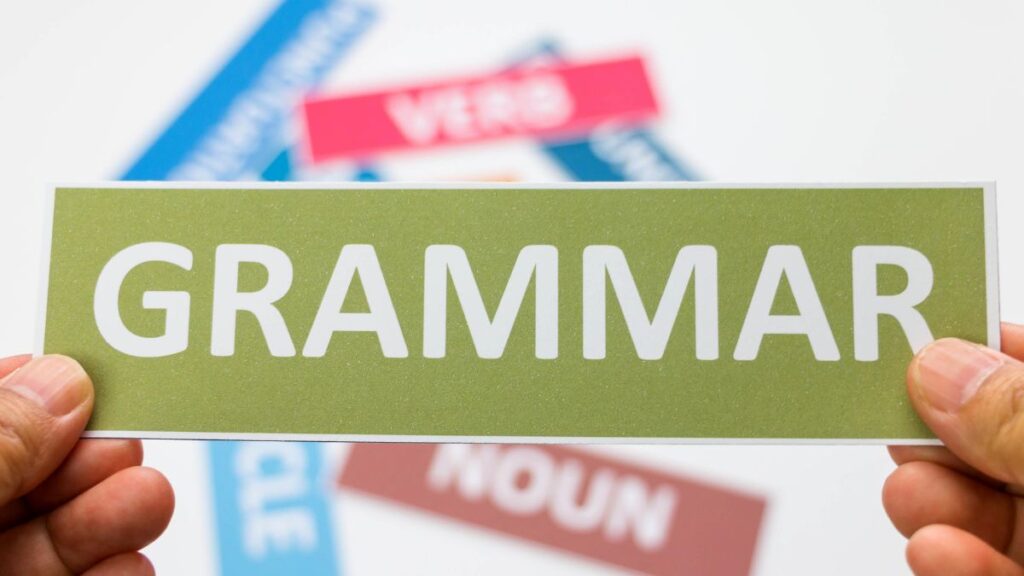We’ve all been there: You write an email, social media post, or report, feeling confident—only to spot a glaring grammar mistake after hitting send.
And here’s the frustrating part: The smarter you are, the worse these mistakes make you look.
Why? Because people assume you should know better.
The good news? These errors are easy to fix—once you understand why they happen.
Today, we’re breaking down the 5 most common grammar mistakes, explaining the real reasons behind them (beyond “they sound alike”), and giving you foolproof fixes.

Table of Contents
Toggle1. “Your” vs. “You’re” – The Classic Blunder
Why It Happens (Reason)
This mistake isn’t just about laziness—it’s rooted in how our brains process language:
- Homophonic Overload: Since your and you’re sound identical when spoken, our brains default to the more frequently used version (your).
- Autocorrect Blind Spot: Spellcheck won’t flag your as wrong, even when you mean you’re.
- Speed Writing: In fast-paced digital communication (texts, tweets), we prioritize speed over accuracy.
The Rule:
- “Your” = Possession (Your phone, your idea).
- “You’re” = Contraction of you are (You’re amazing).
Example Fail:
❌ Your going to regret this.
✅ You’re going to regret this.
Pro Fix: Replace you’re with you are in your head. If it sounds off, use your.
2. “Its” vs. “It’s” – The Apostrophe Trap
Why It Happens
This mistake persists because English apostrophe rules seem inconsistent:
- Possession Paradox: Normally, apostrophes show possession (Sarah’s book). But it’s breaks the rule—it only means it is or it has.
- Overcorrection Fear: People second-guess its because it feels “naked” without an apostrophe.
- Visual Similarity: Our eyes skim over short words, making its/it’s easy to overlook.
The Rule:
- “Its” = Possession (The cat licked its paws).
- “It’s” = Contraction (It’s raining = It is raining).
Example Fail:
❌ The company updated it’s website.
✅ The company updated its website.
Memory Hack: If you can’t replace it’s with it is, use its.
3. “They’re” vs. “There” vs. “Their” – The Trio of Confusion
Why It Happens
Our brains take shortcuts with homophones (words that sound alike):
- Frequency Bias: There is the most common of the three, so our brains default to it.
- Context Blindness: In quick typing, we don’t pause to analyze sentence structure.
- Education Gaps: Many schools no longer drill homophone distinctions.
The Rule:
- “They’re” = They are (They’re coming later).
- “There” = A place (Put it over there).
- “Their” = Possession (Their house is beautiful).
Example Fail:
❌ There going to their favorite park over they’re.
✅ They’re going to their favorite park over there.
Pro Tip: If you mean they are, always use they’re.
4. “Affect” vs. “Effect” – The Psychology of Mix-Ups
Why It Happens
This pair confuses even native speakers because:
- Flexible Parts of Speech: Effect can sometimes be a verb (to effect change), but it’s rare.
- Abstract Meanings: Both words deal with change, making them hard to visualize.
- Overlap in Use: In psychology, affect is a noun (emotional state), adding to the chaos.
The Rule (for 95% of cases):
- “Affect” (verb) = To influence (Stress affects sleep).
- “Effect” (noun) = A result (The effect was surprising).
Example Fail:
❌ The new law had a positive affect.
✅ The new law had a positive effect.
Advanced Note: Save effect as a verb for formal writing (to effect change).
5. “Then” vs. “Than” – The Speed-Typing Victim
Why It Happens
This mistake thrives in the digital age:
- Keyboard Proximity: A and E are close on QWERTY keyboards.
- Sentence Structure: Both words often appear after comparatives (better, taller).
- Verbal Ambiguity: In rapid speech, than and then can sound similar.
The Rule:
- “Then” = Time or sequence (We ate, then left).
- “Than” = Comparison (She’s taller than me).
Example Fail:
❌ I’d rather walk then drive.
✅ I’d rather walk than drive.
Memory Hack: Than has an A for comparison.
Why These Mistakes Matter More Than Ever
In a world of AI-generated content and casual communication, precision builds trust.
- Resume Filters: 58% of employers auto-reject candidates over grammar errors.
- Professional Emails: Clients perceive errors as carelessness.
- Social Media: Mistakes go viral (and not in a good way).
Real-World Consequences:
- A misplaced your/you’re in a sales email can cost credibility.
- Affect/effect errors in reports undermine authority.
Your Action Plan to Never Mess Up Again
- Pause Before Sending: Even a 3-second scan catches 50% of errors.
- Use Text-to-Speech: Hearing your writing reveals mistakes.
- Bookmark This Guide: Perfect for quick checks.
Grammar isn’t about perfection—it’s about clarity and professionalism.
Now you know. Now you win.


